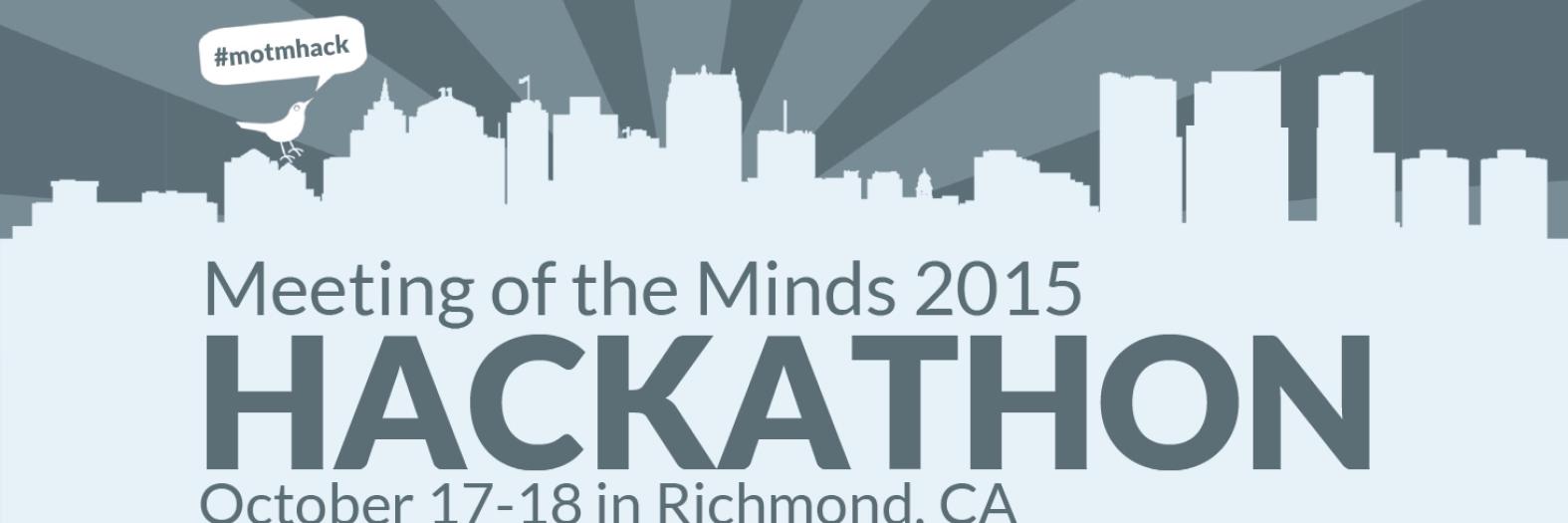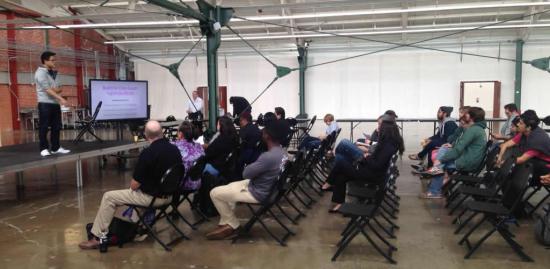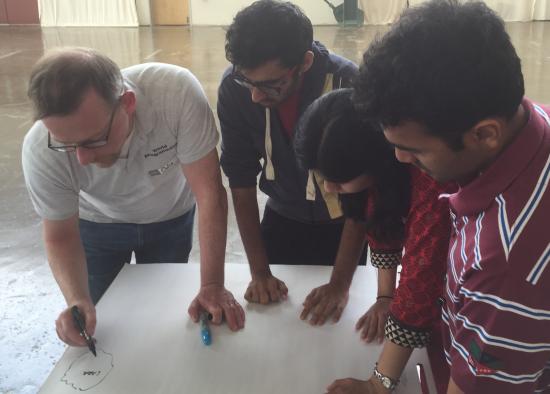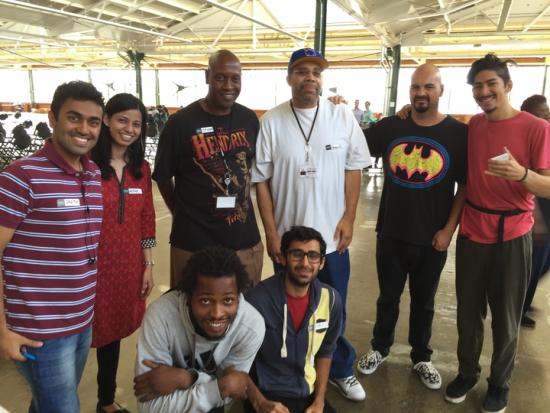Four I School students were named finalists in this weekend’s Meeting of the Minds hackathon, which focuses on the future of sustainable and smart cities. The three teams of finalists presented their projects October 21, before a panel of judges in Richmond, California.
Team members Neera Grover, Carlo Liquido, Pratik Nadagouda, and Parv Sondhi are all first-year students in the I School’s MIMS degree program. Hackathon participants were challenged to develop new technologies that improve the livability, sustainability, and connectedness of cities like Richmond.
The four created a text-based messaging system called Labor2Day to connect day laborers with local employers. Many of Richmond’s day laborers have no idea where to look for jobs, other than maybe standing outside a Home Depot for the day. Using the new system, employers input today’s or tomorrow’s job needs via a web app. The laborers text their name to a number and are led through a sequence of questions. The information is automatically processed and queried in real-time, and potential matches are sent back. Labor2Day doesn’t require WiFi or online access, making it as accessible as possible to day laborers.
The hackathon was organized in conjunction with the annual Meeting of the Minds conference. This year’s conference will convene over 400 VIPs from 25 countries in Richmond, Calif., to discuss the future of sustainable and smart cities. The hackathon aims to provide real solutions that both the mayor’s office and citizens can use to improve the city on a daily basis.
Participants were challenged to develop solutions in seven categories:
-
Accelerate economic development, better prepare applicants for job interviews, or help place Richmond residents in available jobs in their community.
-
Enhance the overall quality of life outdoors within the City of Richmond.
-
Enable the citizens of Richmond to enjoy healthier living conditions and easily maintain a healthy lifestyle.
-
Collect and analyze data on water usage or loss; then leverage this data to improve system efficiency or reduce water consumption.
-
Monitor buildings using retrofit sensors and use the data to reduce CO2 emissions.
-
Provide Richmond’s most disadvantaged neighborhoods with 24/7 access to reasonably priced high-speed internet.
-
Connect adults to literacy services by identifying adults with basic literacy skills and mapping existing data sets of community-wide access points for literacy learning as well as “literacy deserts.”
Over 100 hackathon participants gathered Saturday and Sunday at the Craneway Pavilion on Richmond’s marina for the two-day hackathon. They were provided with cutting-edge hardware, software, and datasets by hackathon sponsors Qualcomm, Gimbal, World Programming, OSIsoft, and SeeClickFix. Mentors and technical experts from the companies helped advise and coach the hackathon teams, and local residents and city staff provided first-hand insight and feedback on the real needs of Richmond residents. Participants had two days to develop a working prototype of their system before presenting it to the panel of judges on Sunday evening.
By the end of the two days, nearly a dozen new civic applications were on display for the judges. In addition to Labor2Day, other projects included a fitness app connecting user’s fitness goals and plans with local businesses, an Internet of Things system using proximity sensors and crowdsourcing to detect bike thefts, and an online kitchen-garden exchange program to serve residents of urban “food deserts.”
The projects were reviewed by a panel judges from Qualcomm, Microsoft, Tumml, the California Public Utilities Commission, and the city of Richmond. They evaluated projects on their creativity, execution, innovation, usability, and presentation, to identify projects that addressed a real and important civic problem. The judges selected three finalists to return on Wednesday and present their work for the entire conference. Following the final presentations, the Labor2Day team was awarded the second-place prize.













